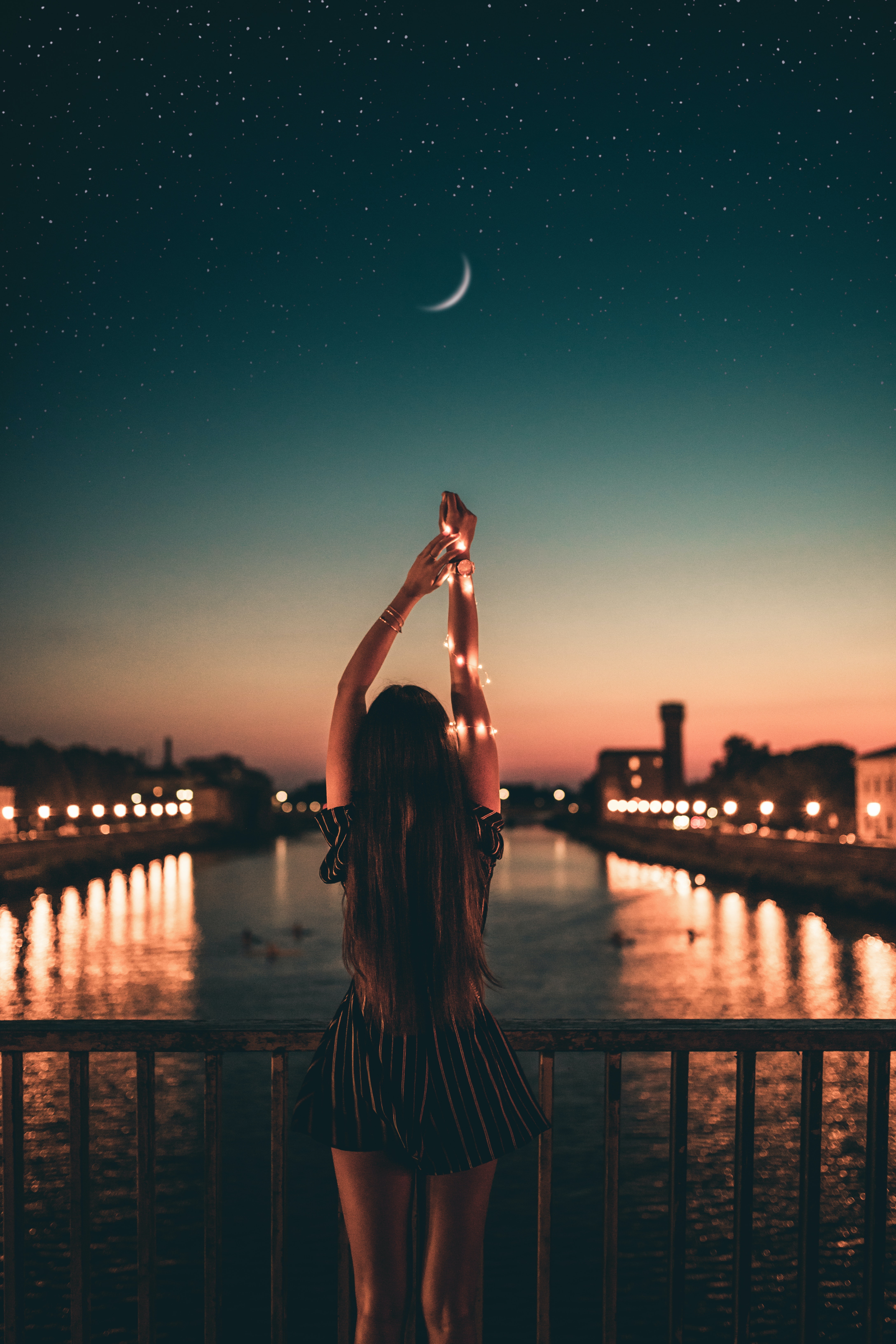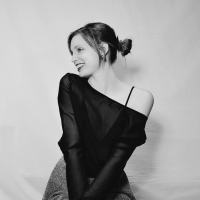It’s new moon time again—a time of new beginnings, reflection, and rest.
If you’re a women who’s in sync with nature, it’s “that time.” And if you’re a man who’s with a woman in sync with nature, well, it’s “that time,” too.
In today’s hectic, fast-paced world it’s normal, and even considered good, to power through all the time, even through the times that should be dedicated to rest.
But rest is something we don’t allow ourselves, or others, anymore. We use excuses and say things like:
“I don’t have time for that, I have sh*t to do.”
“I don’t have an excuse that is good enough.”
“Ah c’mon, your period doesn’t count—you are an emancipated woman, right?”
When exactly did we become so unaware of our own needs, and out of touch with our body, mind, and soul?
We know by now that the moon affects our oceans, but why is it still outrageous for us to believe that they affect us too?
It’s not only a woman’s menstrual cycle that the moon may have a big influence on, but also a human’s sleep rhythm. There’s speculation that the moon’s cycles can even affect mood swings, crime, and heart-diseases or mental illnesses.
But you know how things work in science—with every study that finds evidence for a particular matter, soon after one arises that refutes that theory. And this whole moon-menstrual-cycle-correlation, for example, is up until now, still more of a sacred wisdom than proven science.
Scientists can’t find clear evidence for the correlation between the moon cycle and the menstrual cycle. I’ve read about it a lot, and it’s not all black-and-white.
Coincidence or not: The average length of a women’s menstrual cycle is 29 days and the lunar cycle is 29.5. Even the words “menstruation” and “menses” themselves have origins in the Latin language, where the word “mensis” means month, and that relates to the Greek goddess “Mene,” who is goddess of the months.
Our oceans are affected by the gravitational pull of the moon which creates a tidal force. The tidal force causes the water on Earth to bulge out on two sides of the planet: the one closest to the moon and the one farthest from the moon. We know these bulges as high tides. Whenever we are not in one of these bulges, we experience low tides. Even though, we are made of about 75 percent water, scientists can’t conclude that the gravitational pull is strong enough to have an effect on our bodies.
The moon might affects us for different reasons: through the phases of light and the circadian rhythms.
The journal Psychiatry Research revealed a study which found that bright light at night can help synchronize or control the menstrual cycle. In the study, women with unusually long cycles (45 days) who slept with a 100-watt bulb in their bedroom, that was turned on during the night, from Day 13 to Day 17 of their cycle successfully shortened their cycles to about 33 days. Gabrielle Lichterman states:
“This hints that before electricity and the light bulb, shifts in the amount of light at night during the moon’s various phases could possibly have played a significant role in our menstrual cycle–maybe by affecting certain body processes impacted by light exposure, such as the production of the hormone melatonin, prompting all that folklore tying our menstrual cycle to the moon cycle. Our circadian rhythms used to be more connected to the Earth’s natural days and nights, and so were our menstrual cycles.”
Due to all the light pollution on Earth and because of the fact that we spend a lot of time in front of electronic devices—we are constantly exposed to artificial light—humans can’t perceive the changing levels of moonlight any longer like they used to. We can’t perceive it because it has been obscured.
Due to light pollution—a homemade threat to our own ecosystem—is this the reason that most of us have lost our connection to the moon? Wouldn’t that be sad if this were true?
The real issue here is that somewhere down the road we lost touch with nature and with ourselves.
This said, I am pretty sure that there is a link between “lost touch with nature” and “lost touch with ourselves.” Shelly Burton cut right to the heart of the matter by saying the following:
“Honouring the moon reconnects us with the Earth’s rhythms and our own natural cycles. When we are in sync with nature, it is easier to listen to ourselves—which is critical to building a life that actually works for us.”
Whether the moon does have a scientifically proven effect on us or not—it is, as a part of the universe, constantly there to remind us of our connection to the whole.
The new moon phase reminds us that we should focus our energy inward, take some time to reflect, and listen to our drowned gut feelings. It is said that during this moon cycle, women, in particular, are most in touch with their intuition.
Unfortunately, in the past few decades we have been too distracted by our outer world. We are constantly in action, which is not productive and certainly not healthy. But all of us probably know that it is easy in today’s world to get drawn into this never-ending cycle of busyness.
It’s time for all of us to change for the better. Whether we are a woman with a menstrual cycle or not, we should honour that everything in nature has a cycle in order to reconnect within. Ralph Waldo Emerson once said:
“Adopt the pace of nature: her secret is patience.”
Giving ourselves permission to take breaks, rest, and reflect for a few days is important. Growth needs time. Healing needs time. All of us need time. And our belief system need a revision, too.
Here are some important New Moon reminders:
>> We don’t only need rest when we are already burnt out.
>> We don’t only need rest when we are sick.
>> We don’t only need rest during our holidays.
>> We don’t only need rest when we have our period.
>> We don’t only need rest when it’s a new moon.
Every single one of us should dedicate a few days each month for personal maintenance.
Men of all ages should take time to rest and reflect, and for self-care, whenever they need it.
Women of all ages should take time to rest and reflect, and for self-care, whenever they need it. Especially women who don’t get their period anymore, due to menopause or contraceptives like IUDs, should take time to rest.
I know from experience that we tend to forget about our menstrual cycle. Because I have an IUD I don’t get my period anymore (and I actually miss it). But for me, having my period or menstrual pain was always a monthly reminder that forced me to take things slower, and allow myself to rest during these particular days. Without it, I find myself skipping this important self time.
And most importantly, during the new moon, we don’t only need rest. We also need a cup of almond-milk, hot chocolate, a brownie, and the smell of rain.
We need outdoor activities, like camping. We need a good yoga sequence, and a bath afterward. We need a walk outside, or a drive through the countryside. Maybe we need journaling to reflect.
Maybe we need to lay in the park all day enjoying the sun, and in the evening binge Netflix or read a good book.
Maybe we need a mix of all that—whatever feels good. Whatever allows us to get back in touch with nature and with our true Self.
Give yourself permission to do all that, even if it’s only for two days a month. And because the new moon is a time of new beginnings, reflection, and rest, you might as well use it as a good kickoff—it’s a great excuse!
But wait a second, do we actually need an excuse? Do we need an excuse for reconnecting with nature, listening to our bodies, taking care of ourselves, and staying a bit low-key for a couple of days every month if needed or wanted? Hell no!
Let’s see the new moon as our reminder then. I can still hear some doubts about not having enough time. No time, my ass!
Make time.
Maybe you should rethink your boundaries. Tell your boss “no” the next time he asks you for the millionth time to stay late and finish his sh*t. Saying “no” to others means saying “yes” to yourself.
You are the most important person in your life—don’t forget it.
I suggest that we let the scientists mind their business, while we believe whatever we believe to be true. I mean, TCM isn’t backed by a lot of scientific evidence, but it works well—even though it has a different approach than Western medicine. Or how about yoga? Some benefits may be scientifically proven, but do I care about that proof? I know how much it helps me, and makes me feel good, so I don’t need the scientific proof.
Belief and personal experiences are enough, when it comes to self-care, and we should be a little more open-minded anyway.
~











Read 6 comments and reply